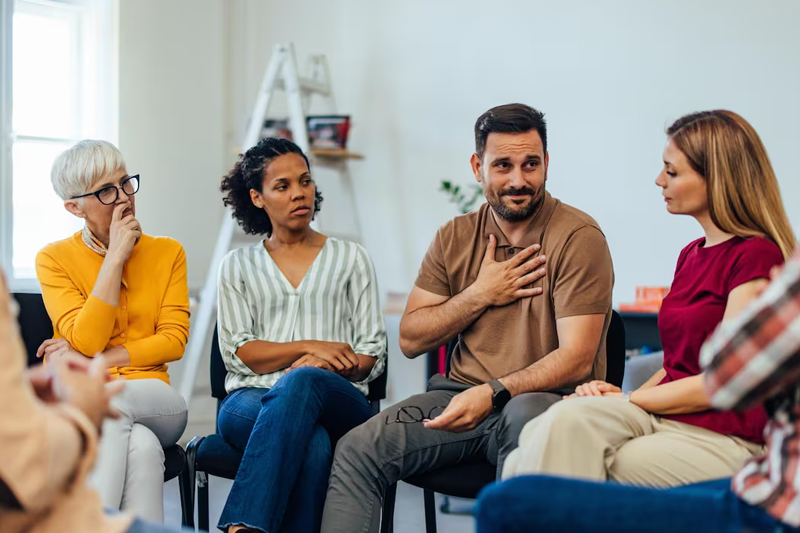Effective Communication Skills
Welcome to Valor Behavioral Health, your trusted dual diagnosis treatment center in Atlanta, GA. In this article, we will explore the crucial topic of effective communication skills and how they play a pivotal role in fostering healthier relationships.
Welcome to Valor Behavioral Health, your trusted dual diagnosis treatment center in Atlanta, GA. In this article, we will explore the crucial topic of effective communication skills and how they play a pivotal role in fostering healthier relationships. As human beings, our ability to communicate is at the core of our interactions with others. By honing these skills and utilizing conflict resolution techniques, we can build stronger connections and lead more fulfilling lives. Let’s delve into the key aspects of effective communication to help you cultivate a deeper understanding of this essential skill.
Understanding the Power of Communication
Effective communication serves as the foundation for all relationships, be it in our personal lives or professional careers. It involves not only verbal exchanges but also non-verbal cues, active listening, and empathy. By comprehending the power of communication, we can enhance our ability to express ourselves genuinely and connect with others on a more profound level.
The Art of Active Listening
Listening is more than just hearing the words spoken by others. It involves being fully present and paying attention to both the words and emotions conveyed. Active listening allows us to grasp the underlying message, leading to better comprehension and empathy. By becoming better listeners, we can build trust and nurture stronger bonds with our loved ones.
The Impact of Non-Verbal Communication
Overcoming Barriers to Communication
Conflict Resolution Techniques
Cultivating Empathy
Empathy is the ability to understand and share the feelings of others. By cultivating empathy, we can put ourselves in the shoes of our loved ones, colleagues, or friends, creating a supportive and compassionate atmosphere for communication.
Setting Boundaries and Expectations
Healthy communication involves setting clear boundaries and expectations. By expressing our needs and understanding those of others, we can prevent misunderstandings and build a foundation of trust.
Effective Communication in Intimate Relationships
Intimate relationships require a higher level of communication skills. Sharing emotions, vulnerabilities, and dreams can be challenging but incredibly rewarding when done effectively.
Communication in the Workplace
Effective communication is equally vital in professional settings. From team collaboration to leadership communication, honing these skills can improve productivity and create a positive work environment.
The Journey of Continuous Improvement
Improving communication skills is an ongoing process. Embrace the journey of continuous improvement, celebrate your progress, and remain committed to growing as a communicator.
Effective communication is the cornerstone of healthier relationships, be it with family, friends, or colleagues. By actively listening, understanding non-verbal cues, and utilizing conflict resolution techniques, we can nurture stronger bonds and build a supportive network of connections. Embrace the power of effective communication and watch your relationships flourish.
Improving communication skills is a gradual process that varies from person to person. With dedication and practice, significant progress can be made in a few weeks to several months.
Yes, therapy can be an excellent resource for improving communication. Professional guidance can help identify areas for growth and provide tools for effective communication.
Many people find it challenging to express emotions. Therapy or counseling can help explore underlying reasons and develop healthier ways to communicate feelings.
Absolutely! Effective communication can bridge gaps and help rebuild trust and understanding in strained relationships.
Lead by example and express your desire for healthier communication. Encourage open dialogue and be patient as they embark on their journey of growth.
Mental Health Treatment
Get Help Now
Find Mental Health Treatment in Atlanta
*By submitting this form, you consent to us reaching out to you
Treatment Philosophy

Meet Our Team

Testimonials
Trustindex verifies that the original source of the review is Google. Extremely Disappointing Experience I recently attended Valor Behavioral Health for mental health treatment, but unfortunately, my experience was overwhelmingly negative. While I had hoped to find support and healing, I encountered several major issues. After serving 20 years in the United States Air Force I have PTSD, Depression and Anxiety and I was very hopeful to receive help from Valor but it ended up being a total waste of 3 months of my time, money, and energy. The quality of care was subpar, with classes that were unengaging and unhelpful. However, my main concerns were with the administrative team, who were consistently unprofessional and unresponsive. Even more alarming, I witnessed staff members engaging in inappropriate relationships with clients, which is a serious ethical violation. Furthermore, I suspect that the facility may be engaging in insurance fraud, which is not only illegal but also a betrayal of trust. What's even more disturbing is that many of the positive reviews I've seen online appear to be fake, written by actual staff members themselves. This lack of transparency and integrity further erodes trust in an already deeply flawed institution. Overall, I would strongly advise others to explore alternative options for mental health treatment. There are likely better, more reputable facilities that can provide the support and care you deserve. This review will be deleted soon since it’s not a 5 star review!!Trustindex verifies that the original source of the review is Google. My experience at Valor has been nothing less than outstanding. I was first introduced to Kerry when I arrived who embodies the perfect first interaction for an incoming client. The family culture they deliver to clients works and made me feel at home almost instantly. I highly recommend this facility if you need to conquer a bump in your life.Trustindex verifies that the original source of the review is Google. Great place to recover!!! Therapists are attentive and knowledgeable. Facilitators and management are excellent.Trustindex verifies that the original source of the review is Google. This place does not provide food . You will be lucky if you see a therapist. They do not respect HIPAA. The owner does not live in Georgia.Trustindex verifies that the original source of the review is Google. I highly recommend Valor Behavioral Health! The therapist, and the whole team goes above and beyond. I have been to multiple treatment centers, and as a 19 year old I can say this is the best treatment for anyone young or older. They communicate effectively and clearly. Any issue arises; they handle it with the utmost professionalism. The qualities they have shown to shine above all are respect, care, and how they truly figure out a individualized treatment plan that will help you or a loved one get pass with whatever you struggle with mental health and or substance abuse wise.Trustindex verifies that the original source of the review is Google. Overall a great experience. Wonderful therapy and groups. I would recommend to others. 5/5.Trustindex verifies that the original source of the review is Google. This was the best experience of my life. I have learned some much from this facility. Valor behavioral health. I now have my tool box of coping skills. Breathing techniques, meditation and worth. I’m now proud of who I am. One of the staff members told me,”it’s none of my business what others think of me.. To the staff I will miss y’all and thank you for believing in me.Trustindex verifies that the original source of the review is Google. If you guys are looking for quality care a super supportive staff that really cares about you this is the place for you. I’ve been to a few treatment centers and love this place they go above and beyond every day I will always be grateful to know these people and call them friends!!Trustindex verifies that the original source of the review is Google. Engaging with many groups that move around topics












